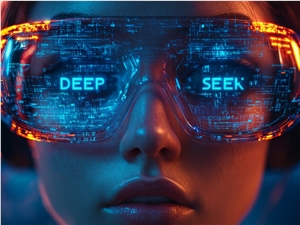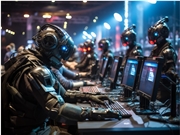Game video sharing platform Medal recently spun off a new AI research lab called General Intuition and announced a $133.7 million seed round led by Khosla Ventures and General Catalyst, with Raine participating as a follow-on investor. This startup uses the vast amount of game video data accumulated by Medal to train foundational models and AI agents, focusing on understanding how objects and entities move in space and time — a capability known as spatiotemporal reasoning.
General Intuition believes that Medal's dataset is superior to alternative platforms like Twitch or YouTube for training agents. The dataset includes 2 billion videos per year from 10 million monthly active users, covering tens of thousands of games. Pim de Witte, CEO of Medal and General Intuition, explained that the video clips uploaded by players are often extreme cases of either very negative or positive content, which provides very valuable edge data for training. "You get a selection bias that precisely points to the type of data you really want for training."
This data advantage reportedly attracted the attention of OpenAI. According to The Information, OpenAI attempted to acquire Medal for $500 million last year, but neither OpenAI nor General Intuition commented on the report.
From a technological progress perspective, the founding team has made some breakthroughs. General Intuition's model can understand untrained environments and correctly predict actions within them. The model achieves this entirely through visual input — the agent only sees what a human player sees and moves in space through controller inputs. The company states that this approach can naturally transfer to physical systems such as robotic arms, drones, and autonomous vehicles, as these devices are typically controlled by human game controllers.
General Intuition's next milestones include two directions: generating new simulated worlds for training other agents, and autonomously navigating completely unfamiliar physical environments.
In terms of commercialization strategy, General Intuition differs significantly from other world model developers. While the company is also building world models for training agents, these models themselves are not products. Unlike DeepMind and World Labs, which sell their world models Genie and Marble for training agents and content creation, General Intuition chose other application scenarios to avoid copyright issues.
De Witte clearly stated, "Our goal is not to produce models that compete with game developers." Instead, the company's gaming applications focus on creating robots and non-player characters that can go beyond traditional "deterministic robots" — pre-programmed characters that always produce the same output.
Moritz Baier-Lentz, a founding member of General Intuition and partner at Lightspeed Ventures, said, "These robots can be scaled to any difficulty level. Creating an invincible robot that beats everyone is not attractive, but if you can scale gradually and fill in liquidity for any player situation, keeping their winning rate around 50%, it will maximize their engagement and retention."
De Witte has a background in humanitarian work, which influenced the company's focus on search and rescue drones. These drones sometimes need to navigate unfamiliar environments without GPS and extract information.
From a long-term vision, de Witte and Baier-Lentz believe that the core functionality of General Intuition — spatiotemporal reasoning — is a key part of the path to artificial general intelligence (AGI). While major AI labs focus on building more powerful large language models, General Intuition believes that true AGI needs something fundamentally lacking in large language models.
De Witte said, "As humans, we create text to describe what happens in our world, but in doing so, you lose a lot of information. You lose the general intuition about spatiotemporal reasoning."
This high-profile seed round reflects investors' confidence in the spatial intelligence sector. Unlike traditional AI models that understand the world through text and images, spatiotemporal reasoning focuses on dynamic changes and causal relationships in the physical world. General Intuition plans to use the funds to expand its team of researchers and engineers, training general agents capable of interacting with the surrounding world. Initial applications will focus on gaming and search and rescue drones. From a technical perspective, using game videos to train AI with the ability to understand the physical world represents a new approach to transferring virtual environment experience to real-world tasks.










